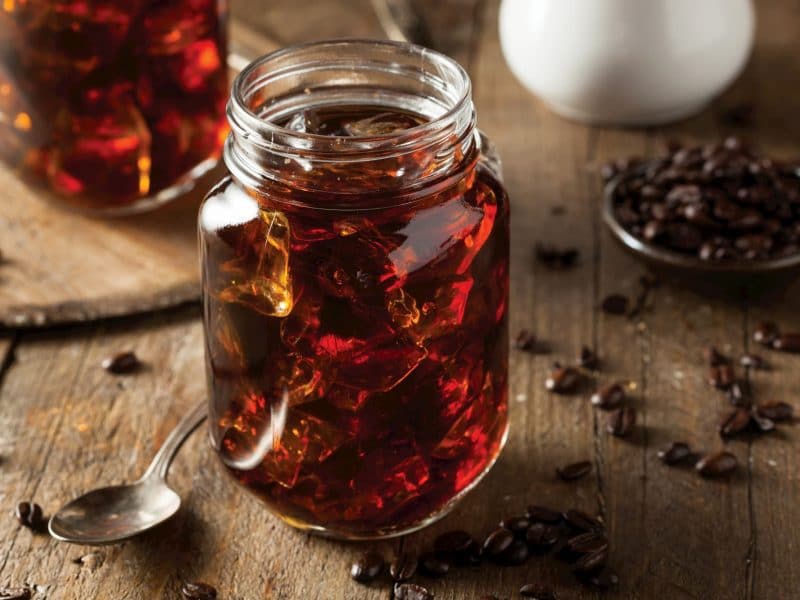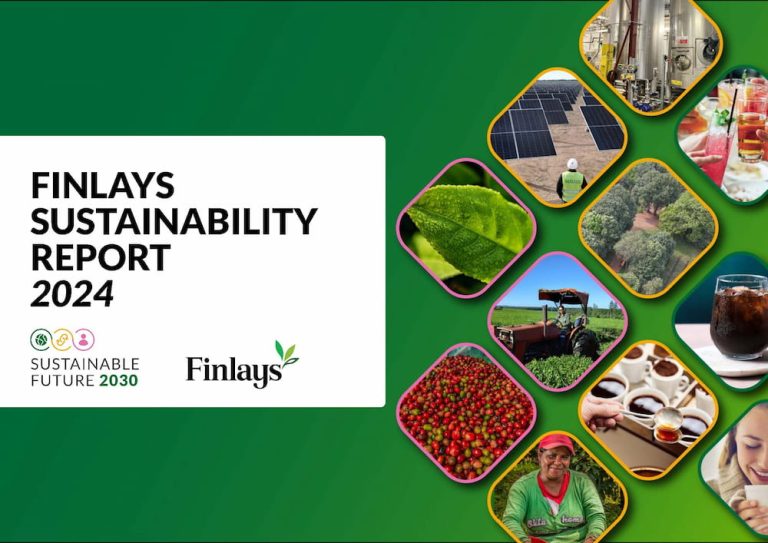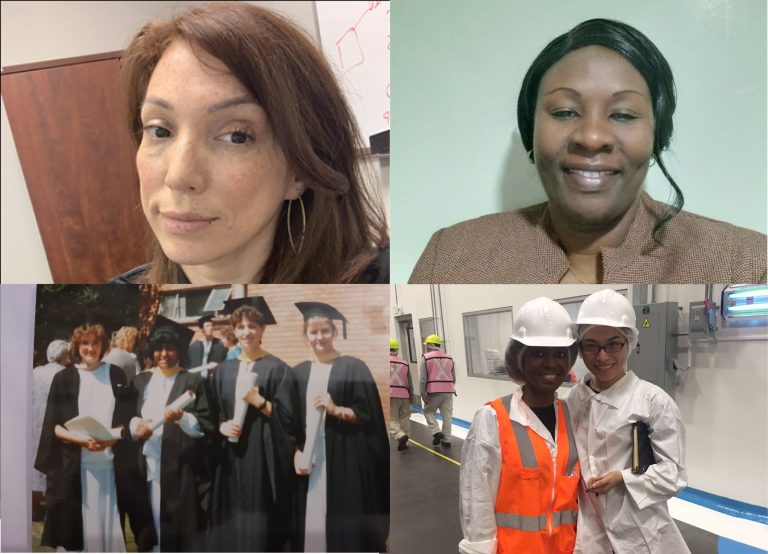It’s been a busy year in the Americas. In late 2019, Finlays finalised the acquisition of aspen beverage group, and quickly moved to combine it with Finlay Extracts and Ingredients USA into one commercial Business unit – Finlays Americas – with Charley Snell at the helm. We talked to Charley about life at Finlays, his new role and why cold brew is about to have its global moment.
—
“Cold brew coffee is one of the great food and drink success stories of our age,” says Charley Snell. “And there’s every reason to believe we’re on the cusp of cold brew having its global moment.” When it comes to cold brew, few people are as worth listening to as Snell. He’s spent the last two years as CEO of Aspen Beverage Group, a leading producer of cold brew in the US and a major driver behind the product’s phenomenal growth over the last decade.
As of April 2020, Snell is also now the CEO of Finlays Americas, a commercial business unit which includes both Aspen, Finlay Extracts and Ingredients USA. “It’s an exciting time for beverages. We’re seeing unprecedented levels of product innovation with new differentiated products and solutions entering the market all the time. The challenge for manufacturers and brand owners is to stay ahead of the curve.”
An entrepreneur at heart Before joining Aspen, Snell spent time in the US Navy which had “a huge impact on how I think”. He then joined Nestlé, rising through the ranks before striking out on his own and founding an organic green tea company that used extracts from Finlays. He joined Aspen as President in 2018, shortly after Finlays invested. “I’d known Finlays for years. It’s a company which makes decisions through its core values of being trusted, sustainable and innovative. As an entrepreneur this is, in my opinion, the cornerstone of a great company.”
What is cold brew coffee: An origin story
Aspen Beverage Group opened its doors in San Antonio, Texas in 1993. Involved in tea and coffee mixes from the beginning, in 2010 the business pivoted to focus more on an up-and coming coffee extract, brewed using cold water. An emerging crop of consumer-branded entrepreneurs was exploring this new way to produce coffee. Coffee that was less acidic and smoother, coupled with more of a caffeine-kick. Cold brew was starting its ascendancy.
“They had the ideas,” explains Snell, “but not the knowledge. They saw cold brew as a big opportunity but didn’t have the know-how on how to produce it. Aspen had been creating cold brew for years at that point, so we were a natural partner for them. Working together, we figured out how to do cold brew right and grew side-by-side as a result.”
These days, Aspen supplies coffee products to the world’s largest food and coffee companies. Finlays entered the picture when it was looking for a secondary source of supply for its operations at Finlay Extracts and Ingredients USA. The two companies grew closer, resulting in Finlays acquiring Aspen in 2017.
The meteoric rise of the cold brew coffee industry
So ubiquitous is cold brew, it’s hard to appreciate that just 10 years ago, it was an unknown quantity. Today, the US cold brew industry is worth over a billion dollars, after experiencing double-digit growth since 2015. Around two thirds of that is through food service. Snell attributes this rapid rise to consumer trends.
“In 2010, organic was the big play. Consumers were starting to reject overly-processed convenience products and starting to look for natural products which offered a functional benefit and were low in sugar. Cold brew fitted into this niche perfectly. It was lower-calorie, natural, smoother and less acidic than traditional coffee – and even better, it had a bigger caffeine kick.”
Cold brew Coffe is here to stay
At a time when beverage innovation comes fast and hard, cold brew has shown unusual staying power. Flash forward to today, and according to Snell, cold brew coffee, while now knocking on the door of the mainstream, is still very much in its high-growth phase. “Demand for natural beverages is booming with no signs of slowing. Couple that with an insatiable appetite for functional beverages and it’s clear why cold brew is sticking around.”
Availability of products has also been a key factor says Snell. “It’s significantly easier to earn space on the shelves of retail than it is in foodservice. But space in foodservice is so powerful. It’s the difference between being one in 50,000 products, and one in five. What we’re seeing now is that cold brew is firmly establishing itself as a go-to dispensed beverage in convenience stores and food service.”
Adaptability is another reason cold brew has endured. Snell explains: “People just can’t get enough coffee. As a drink, as a flavour in cakes, candy, ice cream, you name it. Cold brew lets you do that. It’s also an extremely affable beverage bedfellow, happily rubbing shoulders with everything from fruit juices to dairy. The opportunities for innovation are huge.”
Quality Produced Cold Brew Coffee from Aspen’s & Finlays
Aspen’s proprietary method for producing cold brew, honed meticulously over a decade, means it can produce cold brew to an exact specification with exceptional consistency. This process is increasingly powered by Finlays’ integrated coffee supply chain.
But that’s not its only advantage explains Snell. “We’re the “yes” company,” says Snell. “You want us to source green beans from our UK based trade team? No problem. You want us to roast it? Great – or you can do the roasting yourself. What format do you need it in? We can do that. In fact, whatever you want, we can do it.”
Snell’s ebullience about the future of cold brew is palpable. “In the US, cold brew continues to be driven by population growth and an audience looking for differentiated, natural products. Our plan is to grow faster than the market and we’re well placed to do that. Key to our success will be an unwavering focus on our customers. Because when they win, so do we.”
The Cold brew Coffee Industry is going Global
Let’s return then, to Snell’s assertion that we’re on the cusp of a world market cold brew revolution. Outside North America, cold brew has been slower to enter the mainstream, but Snell believes we’re nearing the tipping point. “America set the trend for processed food and drink, and a decade ago, we saw a reaction against this. A similar thing is now happening elsewhere in the world, particularly in Europe, but in developing markets as well.”
“Our experience in the US market is a huge asset globally, but as a team we’re also able to draw on the expertise of our colleagues around the world. Take Finlay Beverages in the UK, which has over 100 years of coffee experience and a brand-new roaster. That’s experience you can’t buy and it makes us stronger, together.”
When does Snell expect the scales to tip? “It’ll be a gradual revolution. My message to brand owners, retailers, food service and manufactures, is to get in now to stay ahead of the trend.”
Finlays Americas: roadmap to the future
Finlays’ operation in the Americas is far from a one drink pony. As well as its operation in San Antonio, Finlays has another facility in Texas as well as three other facilities on the east coast, including its extracts and ingredients business. As of 2020, these will all be organised into one commercial business unit under the name Finlays Americas, with Snell as CEO. So, what does he see as the road ahead?“
We aspire to be recognised as the true leader in beverages. When you think of tea, coffee, beverage extracts and botanicals, we want to be the first person you call. We’re already there in some categories, but there’s work to do in others. Liquid tea extract and botanicals is a huge opportunity in the Americas and that’s an area we need to focus on. Combining our portfolio into one place is a powerful proposition, offering increased flexibility, service and value to our customers, and those we’d like to be our customers.”
For Snell, a channel-focused approach is key. “Giving our customers what they want is our absolute priority. A channel-focused approach where we intimately understand our customer will allow us to do that. That’s why I see my role as Chief Cultural Officer and it’s how the team and I are going to drive Finlays Americas from strength to strength”.
“I’m an entrepreneur at heart and what excites me about the future of Finlays, both in the Americas, and worldwide, is the opportunity for innovation and for growth. We’ll only achieve that by loving our customers.”
After a whirlwind couple of years in the Finlays family, it sounds like Charley Snell feels right at home.
For more information about Finlays Americas click here, or to find out more about Cold Brew Coffee visit our cold brew coffee page.





